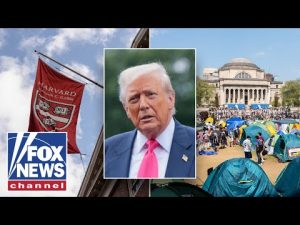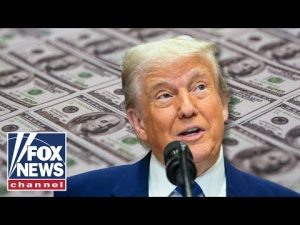China’s economic situation is a tale of excess and illusion, wrapped up in a debt burden that would make even the most seasoned financial analyst raise an eyebrow. With a staggering debt-to-GDP ratio of at least 159%, which is 60% higher than the global average, China illustrates a classic case of “borrow now, worry later.” In fact, the total stock of its corporate, household, and government debt has ballooned to over 300% of GDP, representing an astonishing 15% of the world’s total debt. This isn’t just a balancing act; it’s a tightrope walk without a safety net.
At the core of this financial conundrum is the state-owned banking system, where decisions are heavily influenced by the interests of the government rather than profitable outcomes. One can only imagine the boardroom discussions at these banks, where financial sense takes a backseat to political ambitions. The end result? A sea of bad loans likely buried beneath layers of bureaucracy, leading to a precarious and unstable economic environment. As a sharp observer notes, the prospect of the Chinese Communist Party (CCP) resolving these deep-rooted issues seems more like a fairy tale than a feasible outcome.
Perhaps the most striking example of China’s economic misadventures is its so-called “ghost cities.” These eerie developments, brimming with empty apartments and vacant streets, are not just urban legends; they are tangible testaments to mismanagement. With up to 65 million unoccupied housing units, one has to wonder what sort of investment strategy involves pouring money into unlivable structures. Politicians, seeking to fund extravagant make-work projects, have pushed citizens to invest their retirement savings into these empty shells of apartments, promising continuously rising prices. Spoiler alert: they aren’t getting any more livable anytime soon.
This persistent investment in real estate, despite the looming catastrophe, reflects a broader psychological phenomenon. For citizens in a communist regime, the illusion of ownership—a semblance of control over their lives—is often preferable to the cold reality that their government holds the reins to everything. They gamble on real estate to feel a sense of security in a system where actual ownership is little more than a myth. It’s like purchasing a ticket to a concert only to find out the show isn’t happening.
As China navigates this complex web of overindulgence, bad loans, and ghostly developments, the repercussions are bound to extend beyond its borders. Global markets, investors, and even the average citizen interested in international affairs need to keep a close eye on how this financial saga unfolds. Basic economic principles are not only applicable in the free market but serve as cautionary tales in state-controlled economies as well. With every ill-timed investment and each phantom development, the stakes grow higher for an entire economy teetering on the edge of its own ambitions.







